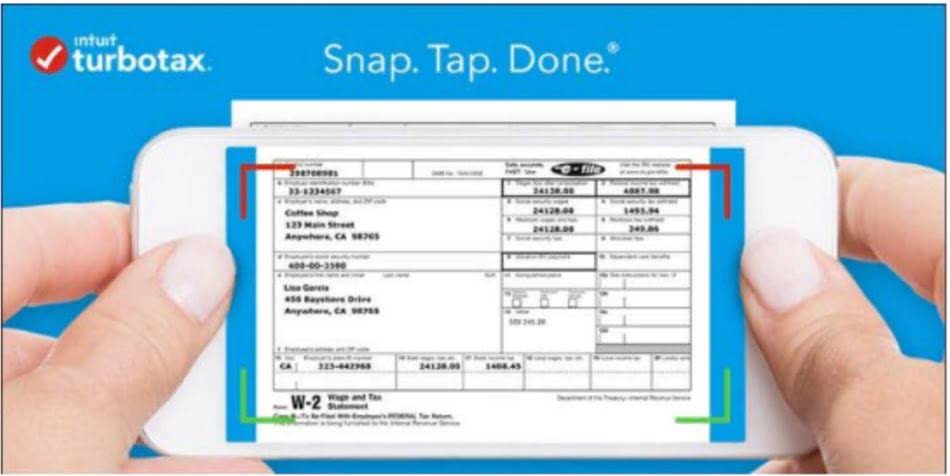Content

Use the chart of accounts to post every journal entry or financial transaction. It’s important to understand whether you need to hire a bookkeeper or an accountant. This choice primarily depends on the industry and the level of expertise required.
But our editorial integrity ensures our experts’ opinions aren’t influenced by compensation. But as your business expands, bringing on a bookkeeper can alleviate your workload and free up your time to devote to other areas of the business. Chart of accounts and make sure there aren’t too many or too few accounts. If the chart of accounts is set up incorrectly, small mistakes can snowball into larger issues down the road. Flatworld Solutions offers a gamut of services for small, medium & large organizations. We provide third-party links as a convenience and for informational purposes only.
ONLINE MASTER OF BUSINESS ANALYTICS
All the presentations are highly simplified to ensure the consumers easily understand the details from a specific financial period. Financial statements from an accounting process offer a glimpse of a company in terms of its financial position, turnover and wealth. Accounting is branched in different categories such as social responsibility, management, and cost, financial to human resource accounting. The terms “bookkeeper” and “accountant” tend to be used interchangeably by those unfamiliar with the industry. But there are a few important distinctions between the two professions. When thinking about bookkeeping vs. accounting, it’s important to keep a few things in mind.

It’s pretty obvious that accounting software is better than bookkeeping software. Accounting software is designed to let you do more and visualize your financial health more clearly. Therefore, you should be looking to use or upgrade to a dedicated accounting app, right? The main difference between bookkeeping and accounting careers is the salary and projected job growth. The BLS reported that the median annual salary for accountants and auditors was $73,560 in 2020, with a projected growth of 7% between 2020 and 2030.
Do you need both a bookkeeper and an accountant?
Accountants are able to earn additional professional certifications. Those who have the right education and enough experience can obtain the title of Certified Public Accountant by passing an exam(In India it’s Chartered Accountant or CA). In order for someone to call themselves an accountant, they must have a bachelor’s degree in accounting. Some people with a finance degree might also call themselves an accountant. A bookkeeper needs to have a good grasp of finances in order to know which details to record.
- Forensic Accounting – An accountant needs sufficient experience to tackle this category.
- To interpret the financial statements in a way that can be useful for business decision making by the owners and other stakeholders.
- The education required to be competitive in the field is greater, but the payoff down the road can be considerably higher.
- Here’s a list of five things a bookkeeping service should include.
For the most up-to-date salary information from Indeed, click on the links provided. The bookkeeper has to be ready with all the information recorded correctly in the right software. Record the expenses that haven’t been recorded by the bookkeepers. But as your business grows and you take on more customers, vendors, and employees, keeping track of how much money you have coming in and going out of your business gets complex – and time-consuming. Double EntryThe double-entry accounting system refers to the double effect of every journal entry. Debit and Credit and this principle states that for every debit, there must be an equal and opposite credit. Cash Flow StatementA Statement of Cash Flow is an accounting document that tracks the incoming and outgoing cash and cash equivalents from a business.
Controllers vs. finance managers
Accountants and bookkeepers work with numbers and financial data all day long. Bookkeepers interested in switching jobs but not have a college degree might consider becoming an enrolled agent after a stint with the IRS. This job doesn’t require a college degree, only five years of tax experience with the IRS. All EAs must have 72 hours of continuing education every 36 months. If you are already a CPA, you can act as an enrolled agent without passing the exam. Companies task bookkeepers with tasks such as recording journal entries and conducting bank reconciliations. A bookkeeper must be able to shift focus easily and catch tiny, hidden mistakes in a budget or invoice, and often bookkeepers work a few jobs for various clients if they work as a consultant.
How do I start a bookkeeping job with no experience?
- Step 1: Invest in Your Work Tools.
- Step 2: Get Basic Bookkeeping Training.
- Step 3: Learn How to Use Accounting Software.
- Step 4: Launch Your Bookkeeping Business.
- Step 5: Negotiate a Reasonable Rate.
- Step 6: Invest in Yourself.
Accounting is the process of keeping financials for a company by recording, summarizing, analyzing, consulting, and reporting. Accounting is usually performed by a certified professional accountant.
What is an Individual Tax Return?
Accounting is the process of summarizing, interpreting, and communicating financial transactions that were classified in the ledger account as a part of bookkeepingStage2. Accounting begins where bookkeeping ends.Management Decisions3. The objective of bookkeeping is to keep proper and systematic records of financial transactions.4.
Can you make 6 figures as a bookkeeper?
To have a 6-figure business, you'll likely need to increase what you charge. You'd think that's an obvious thing to do, but it's surprising how many bookkeepers don't. Plenty of them undervalue their services for various reasons, but for you to reach your business mountaintop, those days must be over.
The education required to be competitive in the field is greater, but the payoff down the road can be considerably higher. Forensic accounting is a highly specialized field of accounting. A forensic accountant’s job is to investigate, audit, and prove the accuracy of financial documents and dealings. These accounting detectives’ work often centers around legal issues. There are opportunities for forensic accountants in many industries, like nonprofit work, government and law-enforcement agencies, law firms, and large corporations.
Think of the controller as the quarterback of the accounting function – overseeing accounting operations. He or she manages the accounting function, including ensuring month-end close processes and financial reporting functions are performed accurately and timely budget creation. Accountants analyze information prepared by bookkeepers to create statements, financial metrics, and reports that provide insights about the company’s operations. Bookkeeping is keeping proper records of the financial transactions of an entity. Accounting is recording, measuring, grouping, summarizing, evaluating and reporting of transactions of the entity which are in monetary terms. Accountants can do bookkeeping but it’s generally better to separate the two categories for small businesses. Bookkeepers and accountants can work together but they have different skills.
Accountant vs Bookkeeper
As your business grows to include more customers, vendors, and employees, keeping track of your finances on your own becomes more challenging. Especially if you are trying to bootstrap a company, keeping another salary off the payroll can help you keep your burn rate low. Finance includes the management of assets and liabilities as well as the planning and forecasting of future growth. While accounting focuses on the short-term operations of the company, finance takes a longer and broader view. Finance is the catch-all term for the study and management of money and investments. It deals with how governments, companies, and individuals create and acquire money as well as how they spend or invest money. Accounting is the measuring, processing, and presenting of financial information about businesses, government bodies, or other economic entities.
Careless mistakes that seem inconsequential at the time can lead to bigger, costlier, more time-consuming problems down the road. Rarely does a bookkeeper work on one big project for an eight-hour shift; instead, a typical workday involves juggling five or six smaller jobs.
- While accounting can be a lucrative long-term career, most accountants, unlike corporate attorneys or investment bankers, do not command huge salaries during the first few years.
- Managerial accounting involves similar functions, but the information is intended primarily to help internal stakeholders make informed business decisions.
- When making the bookkeeping vs. accounting comparison, it is important to remember that accountants have more responsibility.
- Principle of Sincerity — The organization’s accounting provides accurate financial records.
- This process is imperative if leaders want to have confidence when they review their income statements.
- Now is as good a time as any to earn a Master of Accountancy, because graduates may be better positioned to earn specialized certifications and bolster their professional competence.
- You can find more information on which transactions require supporting documents on the IRS website.
Department of Labor’s Occupational Handbook, some of the most in-demand accounting jobs include comptroller, accounting manager, senior tax accountant, and internal auditors. When a bookkeeper wants to leap to being an accountant, they will need to take the CPA exam, plus earn a bachelor’s degree , if they do not have one already. Fifty states plus the District of Columbia require accountants to earn 150 credit hours of college education before taking the national four-part Uniform CPA exam.
They oversee the accountants and bookkeepers and control the company’s cash flow – keeping tabs on how the money comes in and where it is going. One of the biggest differences between accounting vs. bookkeeping is that accounting comes with a broader set of responsibilities and refers to the process of financial reporting. A primary goal of accounting is to provide key financial information to business owners, managers, and investors so they can make informed, strategic business decisions. To do this, accountants thoroughly analyze and interpret financial information to create advanced reports on how the business is performing. Put simply, bookkeeping is defined as the process of recording day-to-day financial transactions in a consistent manner. A day in the life of a bookkeeper will look different depending on the size of the company they work for as well as what types of accounts they manage.

While bookkeepers make sure the small pieces fit properly into place, accountants use those small pieces to draw much more significant and broader conclusions. Bookkeeping is where accountants generally start their careers as the barriers to entry are lower and pay is decent. It is not an unusual career move for a bookkeeper to gain experience at a job and then study, get certified, and work as an accountant.
An accountant can save you hours and help you stay on top of important matters like payroll, tax deductions and tax filings. Accounting software allows you and your team to track and manage your business’s expense reports, invoices, inventory, and payroll accurately and efficiently.
- Accounting also involves reporting these findings to entities such as tax collectors and regulators.
- As your business grows to include more customers, vendors, and employees, keeping track of your finances on your own becomes more challenging.
- They’re more interested in the big picture and don’t have the time or inclination to handle recording daily transactions or organizing financial documents.
- On the other hand, accounting is all about summarizing the recorded transactions, which require a high level of subject knowledge, expertise, analytical skills, conceptual understanding and so forth.
In most cases accounting and bookkeeping have always been used interchangeably but they don’t actually refer to the same thing. Even with difference between bookkeeping and accounting both have some inherent similarities, but in terms of scope one is much analytical and vast than the other. The following are key bookkeeping vs accounting differences and what each actually means, including software that makes both operations efficient and possible. More analytical and actionable accounting functions like cash flow analysis and forecasting. Besides logging and processing debits and credits, accounting systems consolidate key data needed for more proactive financial strategies. What gives accounting software an edge is its proactive use of data. Bookkeeping software concentrates on the basic components of financial management.
Do you need a bookkeeper or an accountant?
A high school degree with basic communication writing and math skills can land you a bookkeeping job. Here’s a list of the best accounting software for small business. Bookkeepers manage your cash – Their work integrates with bank statements to help make financial decisions about where cash is going.

Another difference between bookkeepers and accountants is that accountants often specialize within the field of accounting. Prepare income statements, balance sheets, cash flow statements, and statements of total recognized profits and losses. A day in the life of a bookkeeper varies according to the size of the company they work for, along with the types of accounts they manage. But they work to make accounting vs bookkeeping sure the financial data is accurately entered, processed, and submitted. As a small business owner, you need accuracy and up-to-date in your financial data so you can make good business decisions and ensure you have a healthy cash flow. Financial StatementsFinancial statements are written reports prepared by a company’s management to present the company’s financial affairs over a given period .
Each piece of the financial process is just as important as the next. While these financial https://www.bookstime.com/ roles share common goals, they support different stages of the accounting process.
